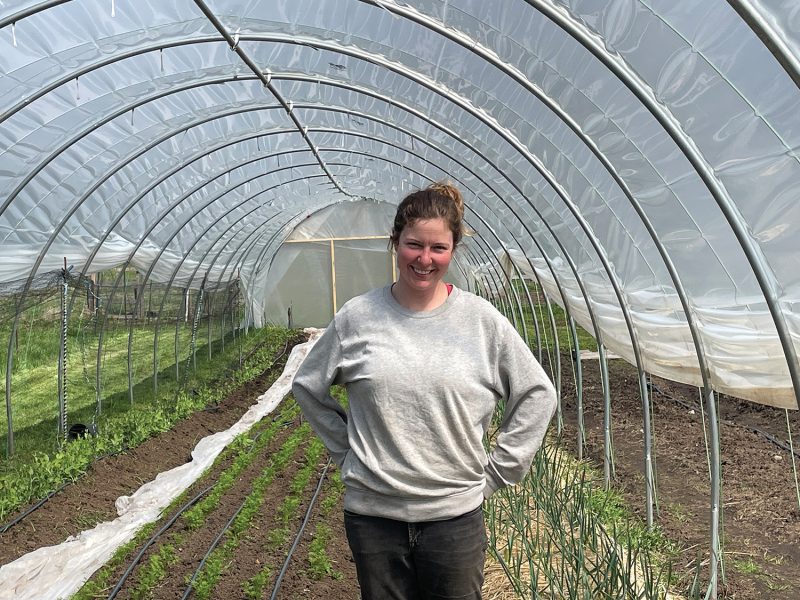SAANICHTON – The newly formed South Island Farmers Institute offers producers the opportunity to connect and learn from one another, a missing component in the local community over the last few years.
“We had about 55 people join us. A lot more people than I had expected, and I was really excited that so many people came and there were a lot of people who I hadn’t met yet,” says grower and lead organizer Katie Underwood of the group’s first meeting on April 16 at the Saanich Fairgrounds. “People were making connections and the networking was great.”
Underwood manages Peas n’ Carrots Farm in Saanich, a half-acre plot in organic mixed vegetables.
Underwood has wanted to build community in the South Island for some time, but the Mid-Island Farmers Institute annual general meeting in February provided the inspiration she needed to put an event together.
“That was wonderful because we were back learning in person, shaking hands, sitting down with other people and asking questions in person instead of doing it on Zoom,” Underwood says. “I really wanted to see that happen in the South Island because we don’t have an institute down here that is providing networking or education opportunities.”
The BC Ministry of Agriculture and Food, Peninsula and Area Agricultural Commission and Capital Region Food and Agriculture Initiatives Roundtable (CR-FAIR) support the development of a farmers institute in the region and funding is available to make future events possible.
The last Farmer2Farmer event in the South Island was in 2018, Underwood says, which was facilitated by CR-FAIR. And she sees a future collaboration with the roundtable, which is helping with grant applications.
While Underwood’s vision is for producers to learn from one another through peer-to-peer learning and workshops, the objectives and outcomes are entirely up to the group.
“Farmers institutes can be whatever they want – running fairs, tool shares, bulk buying, social club – they are shaped by the people who are a part of them,” Underwood says. “We can be formal and apply for funding, but it’s really what we will all make of it and who is involved at what time.”
Looking ahead, Underwood hopes the group can host a summer picnic or BBQ to keep people connected.
Advocacy efforts
On April 5, the Lake Country Farmers Institute in the Okanagan became official, hosting its first meeting on April 11 at Beasley Park. In early May, the institute had 30 members focused on addressing agricultural water concerns, a May 9 news release from the institute says.
The group is encouraging the District of Lake Country to postpone the adoption of a municipal water conservation plan and water master plan to allow for input from the farmers institute.
In addition, members are working on projects to bring information to the public and politicians as water supply and affordability continue to threaten the sustainability of farming in the district.
The district’s agriculture plan, published in September 2020, identified climate change impacts such as an unstable water supply, extreme weather events and changes in pest pressures as threats to local agricultural production. A 2019 producer survey showed that 76% of farm operations irrigate, with the top five crops in the area listed as apples, cherries, peaches, garlic and plums.


 BC Milk, Dairy grow closer
BC Milk, Dairy grow closer